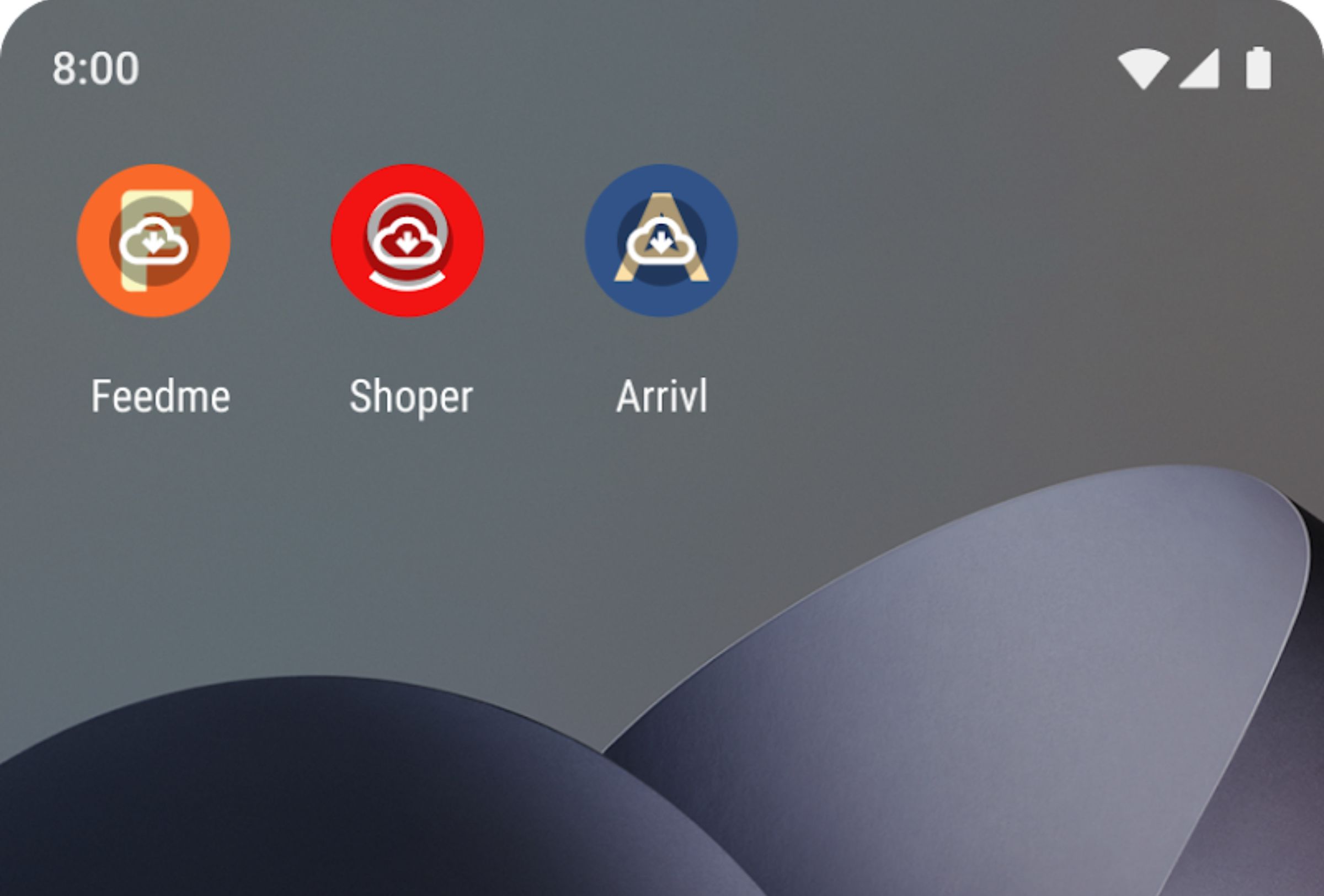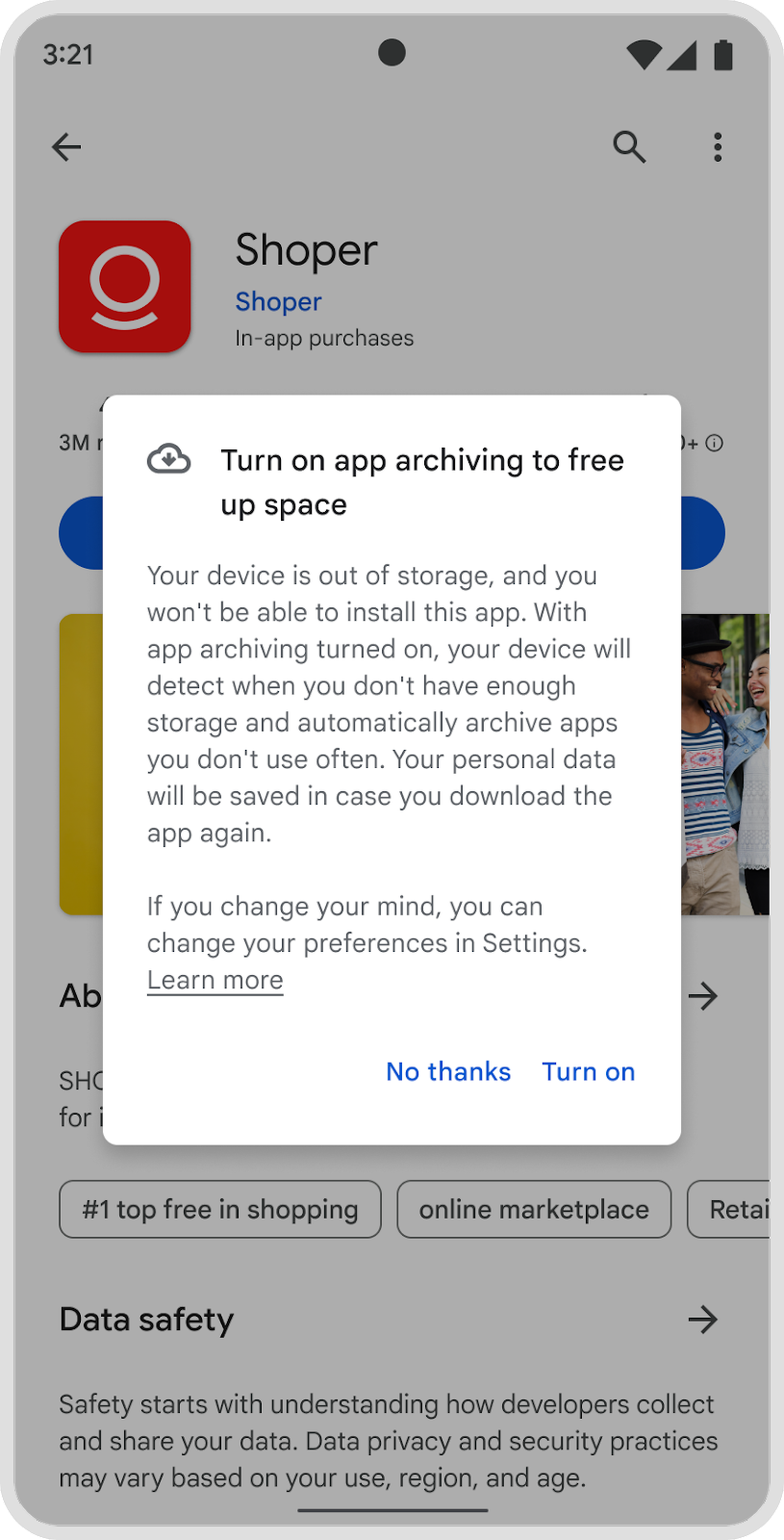The new archiving feature automatically reduces app storage by up to 60 percent without fully removing the applications from your device.

Google has started to roll out its new auto-archive tool for Android devices, designed to free up storage space without completely uninstalling applications from user devices. First teased in May last year, Google claims that the auto-archiving feature can automatically reduce the storage taken up by infrequently used apps by almost 60 percent without entirely removing the application or its associated data from a user’s device.
Archived applications can be distinguished by a cloud icon overlaid on the app icon. Tapping the archived apps will re-download and fully restore them, provided the app is still available on Google Play. The feature should come in handy for those using Android devices that lack expandable storage or users who are reluctant to completely delete apps to free up some space, though not every application will be eligible for auto-archiving. Google notes that the feature is only available on apps published using Android’s App Bundle format, and that apps with archive support won’t appear as frequently on a device’s uninstall suggestions.


Android users will need to opt-in to use the auto-archiving feature. The option will appear via a pop-up window when attempting to install a new app on a device that’s out of storage. Once enabled, the feature will archive all unused apps from the device. A disclaimer on the opt-in pop-up reveals that the feature’s preferences can be adjusted in the settings menu. We’ve reached out to Google to clarify how (or if) users can opt into the feature on Android devices with storage still available and will update this story should we hear back.


Android’s auto-archive tool comes several years after Apple released “Offload Unused Apps” on iOS 11, a feature that similarly “deletes” little-used applications on iPhones while retaining their data, allowing users to jump back in where they left off after restoring the app.









